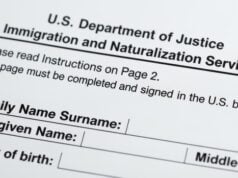
By
Elon Musk’s so-called Department of Government Efficiency (DOGE) has been clear about its plans to fire tens of thousands of employees at the Department of Veterans Affairs. New WIRED reporting sheds light on the specific DOGE operatives at the VA and the ways they’re trying to infiltrate and drastically change the agency.
On March 25, tech staffers and contractors at the VA noticed an unfamiliar name trying to push changes that could impact VA.gov code. It was Sahil Lavingia, a newcomer to the agency listed in the VA’s internal directory as an adviser to the chief of staff, Christopher Syrek.
Lavingia’s presence in the VA’s GitHub instance—a publicly viewable platform that houses projects and code for VA.gov—set off immediate alarm bells. It bore all the hallmarks of DOGE’s incursion into the federal government: Lavingia, a startup CEO and engineer with no government experience, all of a sudden had power—and was in their systems.
Since then, VA employees say they have had multiple concerns following interactions with Lavingia. Beyond his GitHub access, sources who spoke to WIRED indicate that Lavingia, who said on Slack that he wanted to digitize the agency, also appears to be trying to use an AI tool called OpenHands to write code for the VA’s systems. One person with knowledge says that Lavingia had been given what’s known as a “zero account,” which would allow him to be granted privileged access to VA systems.
In response to WIRED’s questions about his work at the VA, Lavingia responded by email saying, “Sorry, I’m not going to answer these, besides to say I’m unpaid. And a fan of your work!”
Lavingia is not the only DOGE representative at the VA. According to sources within the agency, the DOGE delegation also includes Cary Volpert and Christopher Roussos. Other known DOGE members at the VA include Justin Fulcher, who ran a telehealth startup that went bankrupt in the late 2010s, and Payton Rehling and Jon Koval, both of whom worked for Valor Equity Partners and appeared at the Social Security Administration along with the fund’s founder and Musk ally, Antonio Gracias.
These DOGE operatives appear to have no work experience that’s remotely close to the VA in terms of its scale or complexity. The VA administers all the government benefits afforded to veterans and their families for roughly 10 million people, including education, loans, disability payments, and health care. Lavingia is the CEO of Gumroad, a platform that helps creatives sell their work and takes a cut of each sale. More recently, according to his blog, Lavingia launched Flexile, a tool to manage and pay contractors. According to his LinkedIn profile, Lavingia was the second employee at Pinterest, which he left in 2011 to found Gumroad. Lavingia is also an angel investor in other startups via SHL Capital, which backed Clubhouse and Lambda School, among others.
Volpert, who is listed as a senior adviser to the chief of staff, is a graduate of the University of Pennsylvania. On a third-party job site Volpert is listed as the founder of a startup called Lindy Live, which once offered social engagement for senior citizens. According to documents viewed by WIRED, Volpert has been reviewing VA contracts with what appears to be the intent of canceling those agreements. Roussos is the former CEO of 24 Hour Fitness and most recently was CEO of AllerVie Health, an allergy and immunology startup, according to his LinkedIn profile. Last February, he became chair of the company’s board of directors. He is also listed as an adviser to the chief of staff at the VA. Volpert, Roussos, and Lavingia, according to a source at the VA, were introduced by agency leadership in meetings as DOGE representatives.
Disclaimer
Artificial Intelligence Disclosure & Legal Disclaimer
AI Content Policy.
To provide our readers with timely and comprehensive coverage, South Florida Reporter uses artificial intelligence (AI) to assist in producing certain articles and visual content.
Articles: AI may be used to assist in research, structural drafting, or data analysis. All AI-assisted text is reviewed and edited by our team to ensure accuracy and adherence to our editorial standards.
Images: Any imagery generated or significantly altered by AI is clearly marked with a disclaimer or watermark to distinguish it from traditional photography or editorial illustrations.
General Disclaimer
The information contained in South Florida Reporter is for general information purposes only.
South Florida Reporter assumes no responsibility for errors or omissions in the contents of the Service. In no event shall South Florida Reporter be liable for any special, direct, indirect, consequential, or incidental damages or any damages whatsoever, whether in an action of contract, negligence or other tort, arising out of or in connection with the use of the Service or the contents of the Service.
The Company reserves the right to make additions, deletions, or modifications to the contents of the Service at any time without prior notice. The Company does not warrant that the Service is free of viruses or other harmful components.












